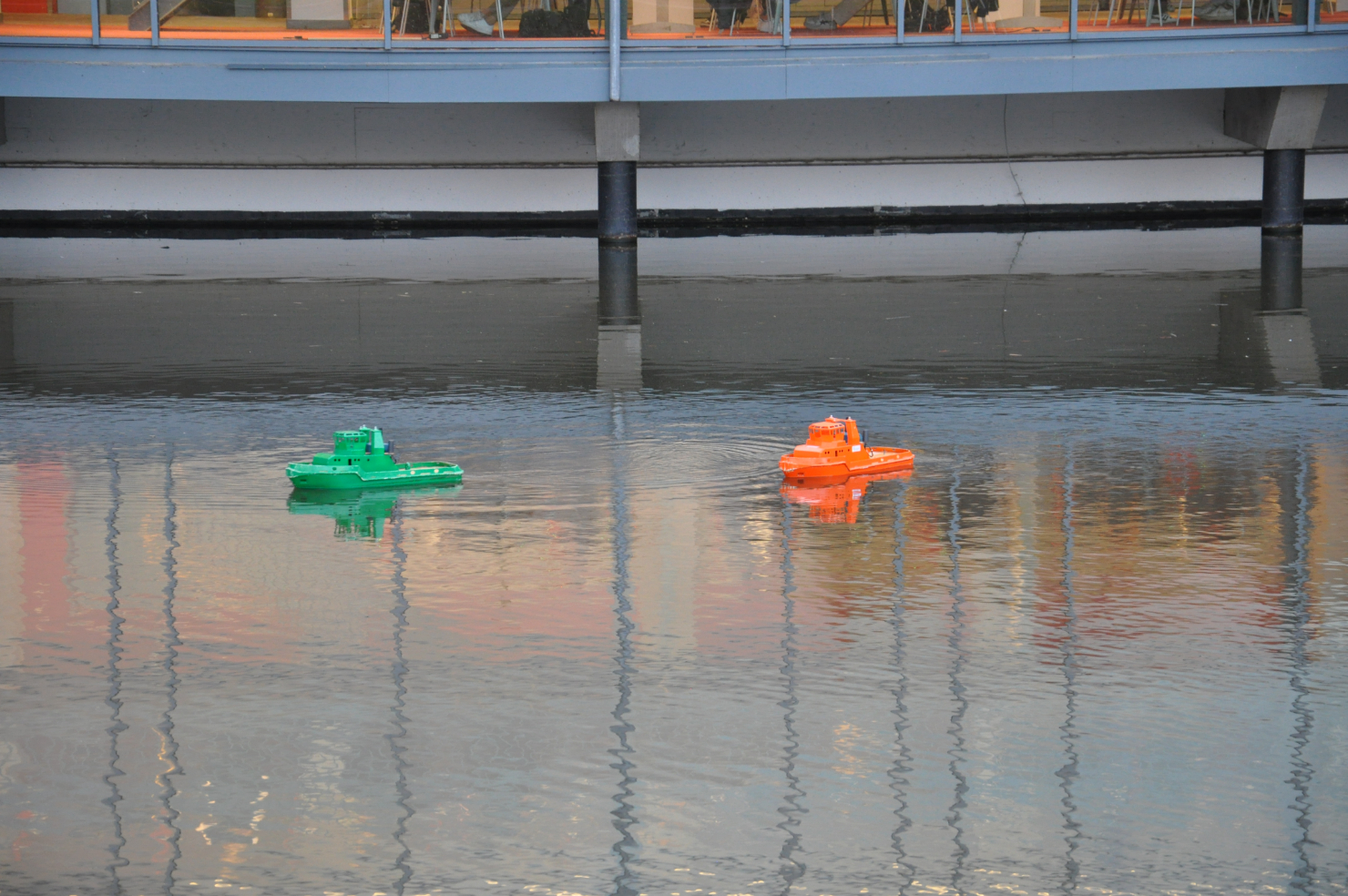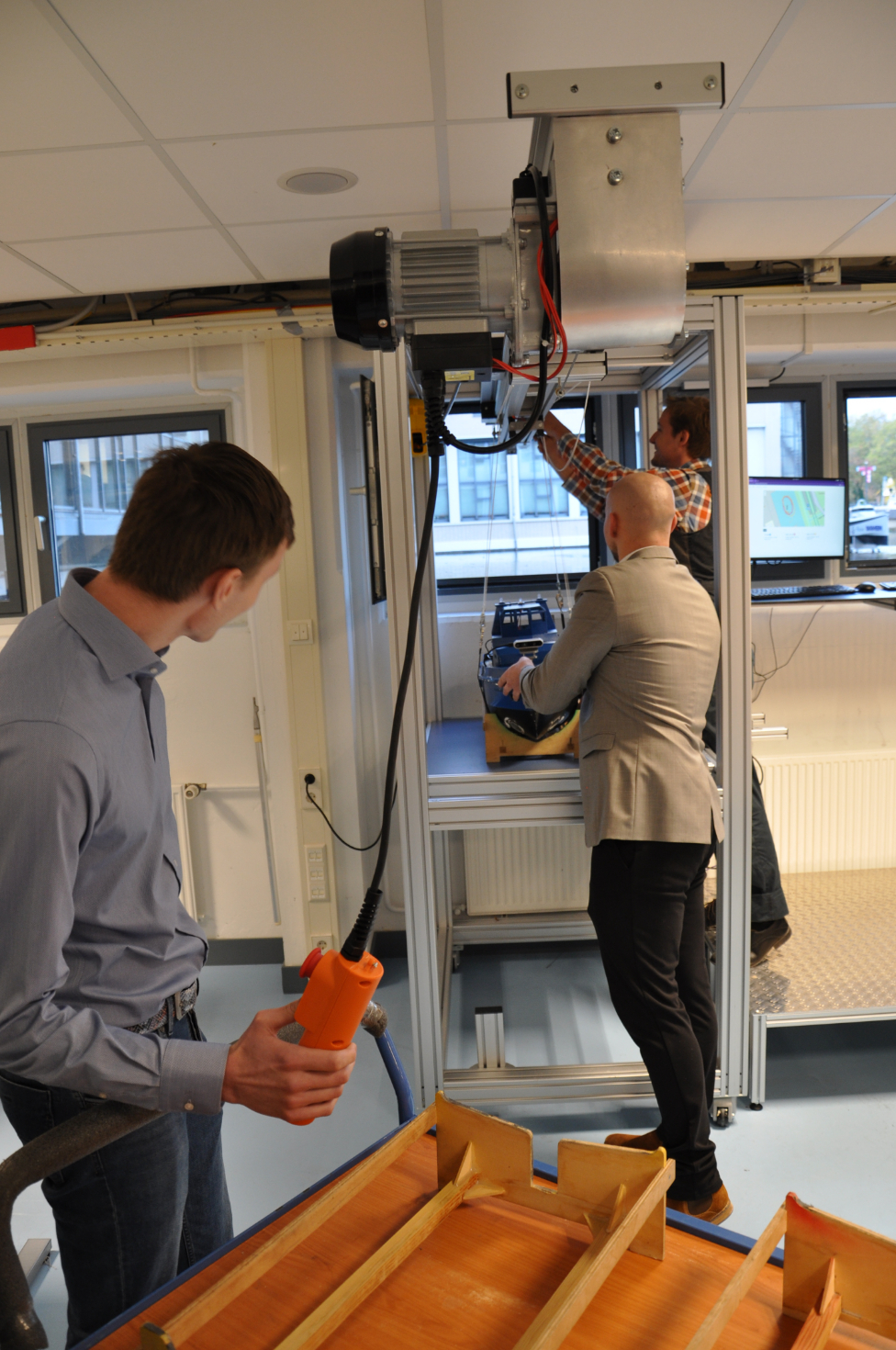Successful demo of long-range remotely-controlled vessels
Wednesday 9th November saw the first fully-automated demonstration of AVATARs - autonomous emission-free waterways vessels - on the pond in front of the 3mE building. Three model-scaled vessels neatly demonstrated their manoeuvrability, precision controlled turning and steering capabilities thanks to long-range Wi-Fi and 4G communications and newly-developed AI directed collision-avoidance technology.
Moving freight transport on to the waterways
“The long-term goal behind the whole AVATAR project is to replace heavy freight traffic on the road in the future with driverless river and canal vessels,” says Yusong Pang of MTT. Yusong is leader of the TU Delft part of the AVATAR project which is responsible for testing and operations, specifically the remote control of the system, “and here we were testing model-scaled vessels developed within our own Researchlab Autonomous Shipping or RAS-lab.”
Electrically-powered vessels
One of ten partners from across Belgium, Germany, Sweden and the Netherlands, TU Delft is developing and testing sustainable transport with the aim of moving large volumes of urban freight along the underutilised inland waterways of the North Sea Region. “Our goal is to build a full-scale electrically-powered vessel capable of carrying 25 tonnes,” explains Yusong, who is confident that this will be achievable within the next 10 to 20 years.

Y. Pang
- +31 15 27 88685
- Y.Pang@tudelft.nl
-
34.B-3-310
Ethical challenges and insurance issues
While technically the project is almost ready, the ethical challenges and insurance issues in the case of accidents are still being worked on, also here in Delft. Yusong: “One of our significant contributions to this AVATAR project is developing the guidelines needed to assess the performance of autonomous ships because at the moment, there aren’t any standard guidelines like there are for autonomous cars – it’s a completely new field.”
Up-scaling for the Next Demo
The AVATAR project is co-financed by the European Union and the InterReg North Sea Region, which held a two-day symposium at TU Delft this week. Following the success of this week’s demonstration with the model-scaled vessels, the next test is scheduled take place in Belgium in early 2023 – this time using an 8-metre long semi-scaled full-size version developed by the partners in Leuven. Meanwhile Yusong is happy with this first successful fully-automated demonstration: “The main message behind the demo is to show the future of zero emission of autonomous ships. And to let the world know of course that AVATARs exist!”




